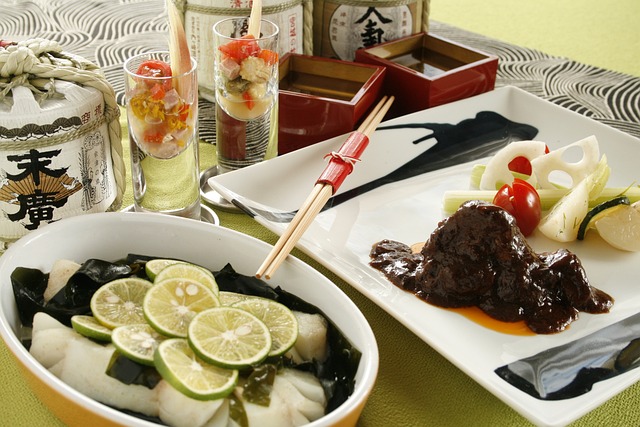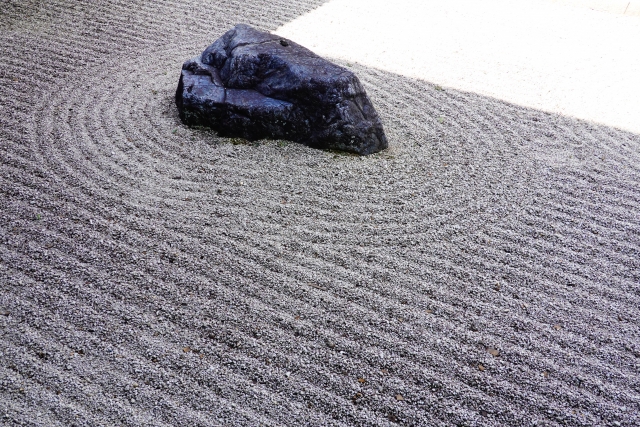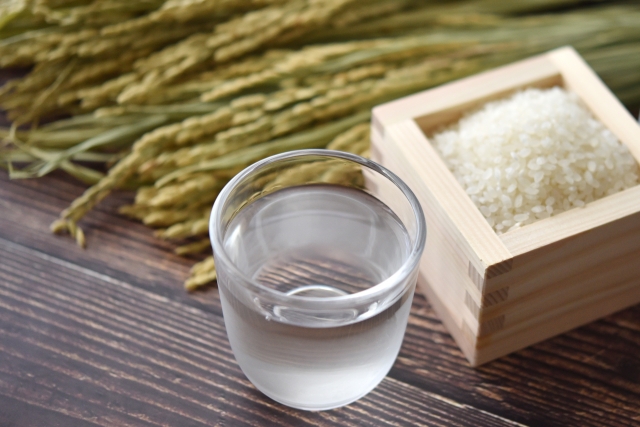
Is Sake Good for You?
Sake, often called 'Nihonshu' in Japan, is not just a drink to lift your spirits; it might actually benefit your health as well. While too much of any alcoholic beverage is harmful, moderate consumption of sake has been shown to provide certain health benefits. In this comprehensive article, we'll explore the relationship between sake and health, and why this traditional Japanese drink is more than just an accompaniment to your sushi.
In the rich tapestry of Japanese culture and tradition, sake has held a prestigious place not just as a ceremonial libation but as a revered elixir believed to possess healing properties. The ancient adage, "Sake is the best of a hundred medicines," reflects a deep-rooted belief in sake's health benefits that span centuries. This saying underscores the historical and cultural significance of sake, highlighting its esteemed place in promoting well-being and longevity.
Sake's Historical Significance as a Medicinal Beverage
Sake's journey as a medicinal beverage dates back to the Nara period (710-794 AD), where it was consumed by monks to aid meditation and by warriors to boost vitality. This historical context lays the foundation for understanding sake's revered status as a health-promoting drink. The fermentation process of sake, which transforms rice into a rich, complex beverage, also creates beneficial compounds that contribute to its perceived medicinal properties.
1. The Science Behind Sake

- What Is Sake?
- Sake, often referred to as Japanese rice wine, is a unique alcoholic beverage that has been an integral part of Japanese culture and tradition for centuries. Unlike grape wine, where the sugar needed for fermentation is naturally present in grapes, sake production involves a two-step process. The starches in rice are first converted to sugars, which are then fermented into alcohol. The primary ingredients are rice, water, yeast, and koji mold.
The variety of rice, quality of water, and specific strains of yeast and koji mold can greatly influence the final flavor profile of the sake. This gives rise to a spectrum of sake flavors, from sweet and fruity to dry and earthy. Moreover, the polishing rate of the rice — which refers to how much of the outer layer of the rice grain is removed — also plays a significant role in determining the taste and quality of the sake.
- Nutritional Profile
- Sake's nutritional properties make it stand out among other alcoholic drinks. It is free of sulfites, which are preservatives commonly found in wine that can cause allergic reactions in some individuals. Additionally, sake is relatively low in acidity, making it gentler on the stomach compared to some other alcoholic beverages.
A standard 1.5-ounce serving of sake typically contains about 39 calories. These calories mainly come from the alcohol and residual sugars, as sake has no fat or protein. It's also worth noting that sake is gluten-free, as it's made from rice, making it a suitable choice for those with gluten sensitivities.
Furthermore, some studies suggest that moderate consumption of sake might offer certain health benefits. It contains amino acids, enzymes, and peptides that can help improve skin health, boost the immune system, and promote overall well-being. However, like any alcoholic beverage, it is essential to enjoy sake in moderation to maximize its potential health benefits while minimizing the risks associated with excessive alcohol consumption.
2. Rich in Amino Acids: The Building Blocks of Life
Amino acids are often referred to as the "building blocks" of proteins, and they play a pivotal role in almost every biological process in our bodies. Sake, during its fermentation process, produces a wealth of these essential compounds.
Sake's unique fermentation process involves the use of koji mold to convert rice starch into sugar, and then yeast to convert those sugars into alcohol. Throughout this process, a diverse array of amino acids is produced. The exact profile and concentration can vary depending on the type of rice, yeast, and brewing method used. This contributes not only to the flavor and mouthfeel of the sake but also to its nutritional profile.
Benefits of Amino Acids in Sake:
- Immune System Boost: Amino acids are crucial for the production of antibodies, which are proteins that help our bodies fight off pathogens. Regular moderate consumption of sake, which provides these essential amino acids, can support a healthy immune response.
- Skin and Hair Health: The amino acids in sake can enhance the production of collagen and keratin. Collagen is a key protein for skin elasticity and hydration, while keratin is vital for the strength and health of our hair and nails.
- Mood and Neurological Functions: Amino acids serve as precursors to neurotransmitters in the brain. These neurotransmitters play a significant role in mood regulation, sleep patterns, and cognitive functions.
- Muscle Growth and Repair: While sake shouldn't replace protein-rich foods, the amino acids it contains can support muscle tissue growth and repair, especially when consumed as part of a balanced diet.
- Digestive Health: Some amino acids aid in the production of enzymes and other compounds that facilitate digestion and absorption of nutrients.
While sake can be a delightful source of amino acids, it's essential to remember that it's still an alcoholic beverage. It should be enjoyed in moderation as part of a balanced diet and lifestyle. Overindulgence can negate any potential benefits and introduce health risks associated with excessive alcohol consumption.
3. Cardiovascular Benefits: A Heart-Healthy Choice

The intricate dance of ingredients and fermentation in sake production yields not just a drink of depth and character, but also one that has been linked to certain cardiovascular benefits when consumed in moderation.
HDL Cholesterol: The Protector of the Heart
- Nature of HDL: High-density lipoprotein (HDL) is often termed as "good" cholesterol because it works to remove other forms of cholesterol from your bloodstream. Higher levels of HDL are associated with a lower risk of heart disease.
- Sake and HDL: Multiple studies have indicated that moderate sake consumption can elevate HDL cholesterol levels. This implies that over time, regular sake drinkers might experience a protective effect against conditions like atherosclerosis, where arteries become clogged with fatty deposits.
Blood Circulation: Vital for Overall Health
- Importance of Circulation: Adequate blood circulation ensures that oxygen and essential nutrients are delivered to cells throughout the body, while simultaneously removing waste products. Efficient circulation is fundamental to overall health and especially crucial for the heart and brain.
- Sake's Role: Elements within sake, particularly certain amino acids and peptides, have been found to aid in vasodilation, which is the widening of blood vessels. This can lead to improved blood flow, thus promoting better circulation. The enhancement in circulation can potentially decrease the risk of cardiovascular diseases and conditions like high blood pressure.
A Word of Caution: While the benefits of sake on cardiovascular health are noteworthy, it's essential to approach its consumption with a balanced perspective. Like all alcoholic beverages, sake should be consumed in moderation. Overconsumption can lead to adverse health effects, including those related to the heart. Moreover, individuals with existing health conditions or those on medication should consult with a healthcare professional before including sake in their diet.
Related Articles
The Heart-Healthy Benefits of Sake
4. Skin and Beauty: Nature’s Moisturizer

For centuries, Japanese women have utilized sake as part of their skincare routine, harnessing its myriad benefits. Let's delve deeper into the skin-loving properties of this traditional drink:
Natural Hydration: A Drink for Your Skin
- The Science Behind: Sake, with its unique fermentation process, is rich in amino acids and organic acids. These elements, especially amino acids like glycerin, act as humectants, attracting moisture to the skin and helping to lock it in.
- Skin Benefits: Regular application of sake-based products or even diluted sake can provide hydration at the cellular level, reducing dryness and flakiness. It can balance the skin's natural pH levels, promoting a radiant, supple complexion.
Anti-Aging Properties: The Elixir of Youth
- Nature's Defense: Sake is abundant in antioxidants, notably ferulic acid, which is known for its ability to neutralize free radicals. These free radicals are unstable molecules that can cause damage to skin cells, leading to premature aging signs like wrinkles and fine lines.
- Protection and Repair: By combating free radicals, the antioxidants in sake protect the skin from environmental aggressors like UV rays and pollution. Additionally, sake promotes the production of collagen, a protein responsible for skin's elasticity and firmness, further enhancing its anti-aging properties.
A Note on Usage: While sake offers numerous benefits for the skin, it's essential to note that pure sake might be too potent for direct application. It's recommended to use sake-infused skincare products or dilute sake with water if using it as part of a DIY skincare routine. As with all skincare products, it's crucial to conduct a patch test to ensure no allergic reactions.
Related Articles
Sake's Secret to Radiant Skin: Unveiling the Beauty Benefits of Japan's Timeless Beverage
5. Digestive Benefits: Aiding Your Gut Health

Japan's signature beverage, sake, isn't just celebrated for its intricate flavors; it also boasts digestive benefits that have been acknowledged for centuries. Here, we'll explore the deeper intricacies of how sake interacts with and supports our digestive system:
Probiotic Effects: The Gut's Friendly Allies
- Nature's Fermentation: The sake brewing process involves fermenting rice with the help of koji mold. This fermentation yields live cultures, akin to those found in other probiotic-rich foods like yogurt and kimchi.
- Gut Health and Immunity: The probiotic elements in sake can help maintain a healthy balance of beneficial bacteria in the gut. A balanced gut microbiota is crucial for digestion, nutrient absorption, and even plays a role in immune system function. By supporting the growth of good bacteria, sake can potentially counteract issues like an upset stomach or an imbalanced gut flora.
Improved Digestion: Breaking Down the Tough Stuff
- Natural Enzymes at Work: Sake's fermentation process produces various enzymes, including proteases and amylases. These enzymes are beneficial for breaking down complex carbohydrates and proteins in our diet, converting them into simpler, more digestible forms.
- Reducing Discomfort: For those who occasionally experience bloating or indigestion after meals, the enzymatic benefits of sake might provide relief. By assisting the stomach and intestines in digesting food more efficiently, sake can reduce the likelihood of gas, bloating, and other digestive discomforts.
A Balanced Approach: While the digestive benefits of sake are promising, it's essential to enjoy it in moderation. Overconsumption can negate these positive effects and may even lead to other health issues. When drinking sake, always prioritize quality over quantity and enjoy its subtle health benefits along with its exquisite taste.
Related Articles
Sake: Enhancing Digestive Wellness and Gut Health
6. Mental Wellness: The Zen Connection

The enchanting world of sake isn't just confined to its rich cultural heritage and intricate flavors. It extends to the realm of mental wellness, echoing the Zen principles embedded deep within Japanese culture. Let's delve into the intricate relationship between sake and mental health:
Stress Reduction: The Calming Elixir
- Amino Acid Magic: Sake, with its unique blend of amino acids, particularly the likes of glutamate and arginine, can induce feelings of relaxation. These amino acids interact with our central nervous system, providing a calming sensation that can alleviate feelings of stress and tension.
- Mindfulness and Savoring: Beyond its chemical composition, the traditional practices of savoring sake — appreciating its aroma, taste, and the ambiance it creates — can be likened to mindfulness exercises. This focused attention to the present moment can serve as a meditative act, further assisting in stress reduction.
Improved Sleep: A Nightcap Tradition
- The Warming Comfort: For centuries, sake has been consumed as a warming drink before bedtime in various parts of Japan. While scientific research on this practice's efficacy is limited, many believe that the warm sensation aids in relaxation and eases the transition into sleep.
- Moderation is Key: It's worth noting that while some individuals report better sleep quality after moderate sake consumption, excessive intake can have the opposite effect. Alcohol, in general, can interfere with the REM cycle, so it's essential to strike a balance.
The Cultural Connection: The act of drinking sake often takes place in serene settings, from traditional Japanese inns to tranquil sake bars. The combination of ambiance, paired with the drink's natural properties, amplifies its potential mental health benefits. Engaging in rituals, like sharing sake with friends or reflecting alone, can be therapeutic, offering moments of introspection and connection.
7. Cancer Prevention: A Grain of Truth
The journey of understanding sake's potential health benefits has led researchers down various paths, one of which touches upon its potential role in cancer prevention. Let's explore the depth of these studies:
Compounds in Sake with Potential Anti-Cancer Effects:
- Sake's Unique Components: Sake, particularly high-quality varieties, contains several unique compounds not found in other alcoholic beverages. Among these, certain peptides and amino acids have garnered attention for their potential anti-cancer properties.
- Koji Mold's Role: The koji mold, Aspergillus oryzae, crucial in sake production, is known to produce secondary metabolites, some of which have exhibited anti-tumor activities in preliminary studies.
Understanding the Research Landscape:
- In Vitro Studies: Various laboratory studies on isolated cells have shown that compounds in sake can inhibit the growth of cancer cells. However, these are preliminary findings, and how they translate to the human body remains a topic of ongoing research.
- Epidemiological Observations: Some epidemiological studies in Japan have observed lower rates of certain types of cancer in populations with moderate sake consumption. It's essential, however, to approach these findings with caution, as various factors, including diet, lifestyle, and genetics, can influence cancer rates.
- The Balance of Alcohol Consumption: While some compounds in sake may have potential cancer-preventing properties, it's vital to remember that excessive alcohol consumption has been linked to increased cancer risk. Thus, if one chooses to consume sake for its potential health benefits, moderation is key.
A Note of Caution: The scientific community remains cautious about definitively linking sake consumption to cancer prevention. Many factors can influence cancer development, and it's crucial to approach the topic with a comprehensive understanding. That said, the ongoing research into sake's potential health benefits is certainly promising and adds another layer to this beverage's rich tapestry.
8. Osteoporosis and Bone Health
The bone structure is integral to our overall well-being, and osteoporosis - a condition characterized by fragile bones - is a prevalent concern, especially among the aging population. One might not immediately associate sake, a traditional Japanese rice wine, with bone health, but intriguing findings hint at a potential link:
The Science of Calcium Absorption:
- Fundamentals: Calcium is vital for the development and maintenance of strong bones. Our body absorbs calcium from the food we consume, and this absorption process can be influenced by various factors, including the presence of certain vitamins, minerals, and even compounds found in beverages like sake.
- Sake's Influence: Studies have indicated that some elements in sake could enhance calcium absorption. For instance, specific proteins and amino acids found in sake might aid in the more efficient transport of calcium through the intestinal wall and into the bloodstream.
How Sake Could Impact Osteoporosis:
- Strengthening Bone Density: Improved calcium absorption theoretically leads to increased mineralization of bones. Over time, and with consistent, moderate consumption, sake might play a role in bolstering bone density.
- Complementary Nutrients: Sake also contains other minerals and vitamins, like magnesium and vitamin D, albeit in small quantities. Both have known benefits for bone health, with magnesium playing a role in bone formation and vitamin D improving calcium absorption.
Moderation is Key:
While these findings are promising, it's essential to highlight that sake is still an alcoholic beverage. Overconsumption can have adverse effects on one's health. As always, moderation is crucial. Those interested in considering sake for its potential bone health benefits should also be aware of the recommended dietary calcium intake and ensure they are consuming adequate amounts from varied sources.
Concluding Thoughts:
While more extensive research is required to firmly establish the connection between sake and bone health, the preliminary insights offer an exciting perspective on this traditional beverage. As we unravel the health benefits of foods and drinks from different cultures, it's always fascinating to discover the ancient wisdom that might align with modern science.
9. Warnings and Disclaimers
The allure of the potential health benefits of sake is undoubtedly captivating, given its rich history and cultural significance. However, before one considers integrating sake into their lifestyle for its health properties, there are essential caveats to keep in mind.
Moderation is Key
- Potential Health Risks: While moderate sake consumption may offer certain health advantages, excessive drinking can lead to a host of health issues. These include liver diseases, addiction, increased risk of accidents, and other alcohol-related complications.
- Defining Moderation: 'Moderation' can vary from person to person. Factors such as body weight, age, sex, metabolism, and overall health can influence how much alcohol is considered 'moderate.' Generally, for sake, a small glass (about 180ml) once or twice a week can be considered moderate for most adults.
- Combining with Medications: If you're on medication, even moderate sake consumption can have unwanted interactions. It's always best to consult with your doctor to understand any potential risks.
Not a Medical Solution
- Complementary, Not Curative: While the compounds in sake have been linked to various health benefits, it's crucial to view sake as a potential complement to a healthy lifestyle rather than a cure or treatment for specific ailments.
- The Role of Diet: Sake, like all foods and beverages, should be part of a balanced diet. Relying on sake alone for its potential health benefits while neglecting other dietary needs can be counterproductive.
- Understanding the Research: Much of the research on sake's health benefits is still in the preliminary stages. This means that while early results are promising, they are not definitive. Always approach such topics with an open yet critical mind.
Consultation and Guidance:
- Seek Expert Advice: Before making significant changes to your alcohol consumption or if you believe you might have an alcohol-related issue, always seek guidance from a healthcare provider or counselor.
- Cultural Considerations: Remember that in many cultures, including Japan, drinking sake is often a communal activity, centered around celebration, bonding, and respect. Its consumption is not solely for health purposes.
In conclusion, while the ancient art of sake brewing and its storied history bring with them a wealth of potential health benefits, it's crucial to approach this beverage with a sense of respect, understanding, and moderation.
Savoring Sake for Wellness: The True Benefits of Japan’s Signature Beverage

Sake, revered as Japan’s signature rice wine, is not just a beverage. Beyond its deep cultural roots and sophisticated flavors, sake has taken the limelight for its potential health and beauty benefits. Let’s dive deeper into understanding the merits of this age-old drink and how it's traditionally consumed in Japan for wellness.
The Alluring Trio: Appetite, Rejuvenation, and Radiant Skin
The health-conscious connoisseur of sake often points to three celebrated benefits: an increased appetite, the refreshing feel after consumption, and a boost to the skin's health. Central to this is the element called “Kojic Acid”. This component, found in sake, is known to inhibit melanin production, potentially reducing skin spots and offering a brighter complexion.
The Power of Polyphenols and Ferulic Acid
Sake contains a polyphenol called "Ferulic Acid". This compound is believed to decrease reactive oxygen species within the body, an effect that has spotlighted sake's potential health benefits. The ongoing research into the health effects of sake has unearthed numerous intriguing findings, further propelling its reputation as a beverage of wellness.
A Reservoir of Nutrients: Amino Acids, Vitamins, and More
Sake, when broken down, is a treasure trove of nutrients. Among the constituents, amino acids stand out, especially because sake has them in abundance compared to other alcoholic beverages. These amino acids, particularly the peptides (combinations of two or more amino acids), play a pivotal role in supporting health. Known to potentially reduce blood pressure, peptides are being increasingly recognized for their preventive benefits against conditions like hypertension and diabetes. Furthermore, recent studies suggest that these peptides might even aid memory enhancement, with pure rice sake (Junmai-shu) being especially rich in them.
Amino acids, integral to our health, serve myriad functions within the human body. Among these, the "essential amino acids" are of prime importance since the body cannot produce them, necessitating external intake. Impressively, all these essential amino acids are found in sake.
Warming from Within: The Circulatory Boost
One of the immediately noticeable effects of sipping sake is the warming sensation it imparts, often described by enthusiasts as a ‘gentle embrace from within’. This is attributed to a component called “adenosine”, known to dilate blood vessels and enhance circulation. Such a circulatory boost can be therapeutic, potentially alleviating issues like muscle stiffness, cold extremities, and even mental stress.
Moderation is Key: The Authentic Japanese Approach
While the health benefits of sake are numerous, it's crucial to emphasize moderation. The general guideline within Japan leans towards a daily limit of approximately 180ml, or one “gou”. The aforementioned health benefits are contingent upon adhering to this measure. Overindulgence can not only negate the positive effects but could also introduce health risks. As with all things, balance is the essence.
To revel in the healthful properties of sake, it’s essential to understand and respect its heritage, composition, and the wisdom behind its consumption. Embracing the Japanese way of moderate, mindful sipping can unlock the holistic wellness that sake promises.
Conclusion:Exploring the Health Benefits of Sake
While sake is often enjoyed for its taste and cultural significance, its potential health benefits are an added bonus. From cardiovascular and digestive health to skin and mental wellness, sake is a drink that can nourish both your soul and your body. However, moderation is crucial, and it's important to consult healthcare professionals for personalized advice.
References
Oral administration of Japanese sake yeast promotes non-rapid eye movement sleep in mice via adenosine A2A receptors. This study explores the molecular mechanisms behind sake yeast's ability to improve sleep quality, emphasizing its potential as a food supplement.
https://pubmed.ncbi.nlm.nih.gov/27338238/
Protective effects of Japanese sake yeast on depressive-like behaviors, oxidative stress, and inflammatory parameters in a rat model. This research assesses sake yeast's impact on depressive-like behaviors and its antioxidative and anti-inflammatory properties in a cerebral ischemia/reperfusion rat model.
https://pubmed.ncbi.nlm.nih.gov/37419037/
Japanese sake yeast supplementation improves the quality of sleep: a double-blind randomized controlled clinical trial. This clinical trial investigates sake yeast's effectiveness and safety in supporting high-quality, deep sleep, underlining its beneficial properties without adverse effects.
https://pubmed.ncbi.nlm.nih.gov/26354605/
Research advances on sake rice, koji, and sake yeast: A review. This review presents comprehensive research details on the ingredients involved in sake production, including sake rice, koji, and sake yeast, highlighting the importance of enzymes and genes of microbes in rice koji and the breeding of sake yeasts.
https://pubmed.ncbi.nlm.nih.gov/32724564/
Ingredients, Functionality, and Safety of the Japanese Traditional Sweet Drink Amazake. This study funded by Hakkaisan Brewery Co., Ltd. delves into the health benefits of amazake, a traditional sweet drink made from koji, demonstrating its anti-fatigue properties, positive effects on bowel movement and skin barrier, and its relation to sake brewing.
https://pubmed.ncbi.nlm.nih.gov/34200668/
Sake Facts, Health Benefits and Nutritional Value: This page discusses the health benefits associated with sake, including potential preventive effects against Alzheimer's disease, benefits for blood pressure, liver health, cholesterol reduction, and even cancer prevention.
https://www.healthbenefitstimes.com/sake/
The Traditional Japanese Diet May Have Lessons for Modern Life: Analyzes the sustainability and health benefits of the traditional Japanese diet, emphasizing the importance of local and diverse food production and the need for consumer education on diet and health.
https://www.nature.com/articles/d42859-021-00062-7
